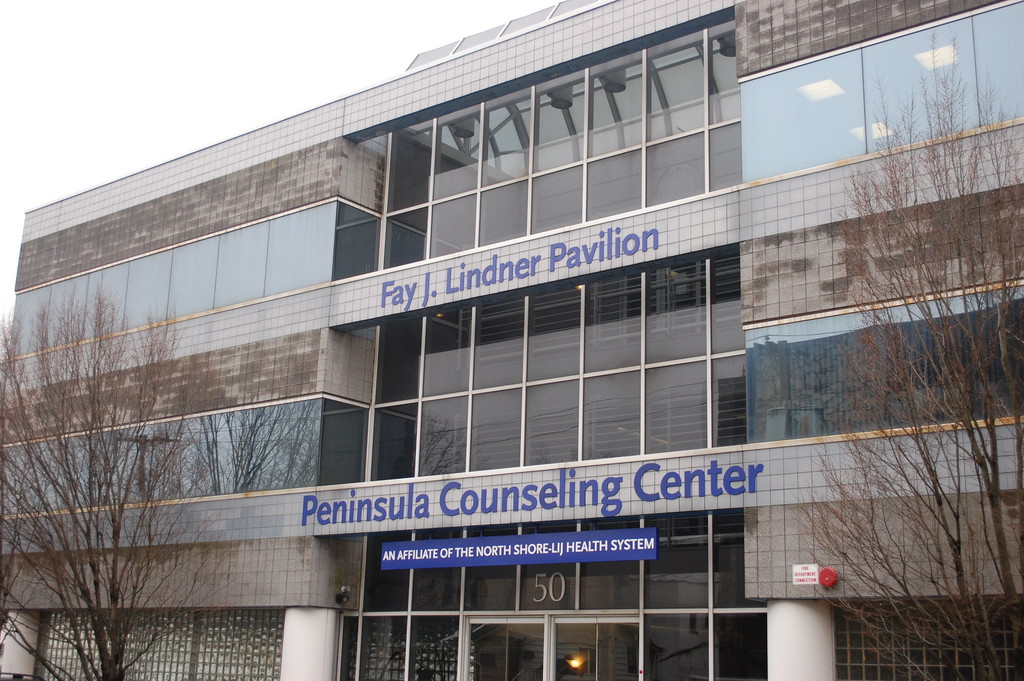Peninsula Counseling Center inks partnership
Sponsorship will help 99-year-old mental health agency grow
The Peninsula Counseling Center has grown from its humble beginnings in the Five Towns 99 years ago. Last week, it announced one of the biggest changes in its history, as it agreed to a sponsorship deal with behavioral health organization Promoting Specialized Care and Health.
PCC, a mental health facility now based in Valley Stream, is facing serious financial challenges due to reduced reimbursements from health insurance companies and dwindling support from the state. The partnership with PSCH will help ensure the center’s long-term viability, its leaders say.
“There’s just no money,” said Jay Greenbaum, the immediate past president of PCC’s board of directors. “The needs are still out there. The services still have to be delivered.”
The counseling center, an affiliate of the North Shore-LIJ health system, is the largest mental health facility in southwest Nassau County. It provides a range of psychological services including counseling, chemical dependence treatment, family therapy and crisis intervention. In 2008 it moved to Valley Stream, consolidating most of its services in one central location on Hawthorne Avenue.
John Kastan, the center’s executive director, said that discussions with PSCH began less than a year ago. He said that in the rapidly changing health care field, it became necessary to have a partner with “deeper pockets.”
Willie Scott, a spokesman for PSCH, said that PCC officials approached its leaders about the sponsorship. “Their program is consistent with our strategic plan,” Scott said. “Peninsula is an excellent organization.”
Kastan said that the sponsorship isn’t just about PCC’s ability to survive. By partnering with a large organization like PSCH, PCC can take advantage of its resources to stay at the forefront of the mental health field. The relationship with North Shore-LIJ is expected to remain the same.
PCC has become known in the community as a cutting-edge facility, Kastan said, and it is important for it to retain that reputation. “That’s been one of the legacies of Peninsula over the years,” he said. “It was known as one of the more aggressive providers that adapted to changes.”
While the center is well known in the area, it remains a relatively small agency. “The little guy is going to have to find new ways to reinvent itself,” Greenbaum said.
Kastan said that PCC doesn’t have the large endowments that some regional mental health facilities benefit from. PSCH, on the other hand, has a network of facilities stretching from New Jersey to Suffolk County. One of the benefits for PSCH in this sponsorship, Scott said, is that it will gain a greater presence in Nassau County. Its existing Nassau County-based services include a vocational rehabilitation program in Great Neck.
Under the agreement, PCC will maintain its name and identity, and will continue to have its own board of directors. Kastan will stay on as executive director, and will also take on a role in PSCH’s senior management group, as vice president of strategic initiatives.
He said that the sponsorship would lower operating costs for both organizations because they will able to consolidate back-office functions. PCC’s clinical staff will remain in Valley Stream or its satellite locations, but many administrative positions will be eliminated or relocated. Kastan said that many of those staff members will have the opportunity to apply for jobs with PSCH, which is based in Flushing, Queens.
Alan Weinstock, president and CEO of PSCH, expressed optimism about the new partnership. One advantage for all of the mental health facilities in the PSCH network, he said, is access to technical resources that few community-based clinics can afford. Weinstock said he also hopes the partnership will lead to new and expanded services. “Working with our new colleagues, we will achieve high-quality outcomes and develop innovative approaches to care,” he said.
Greenbaum explained that the decision to partner with PSCH was anything but a hasty one. Perhaps PCC could have survived, but, Greenbaum added, the sponsorship was in everyone’s best interests, especially the clients who depend on its services. He said it is doubtful that those clients will even notice the change, except for perhaps an increase in services. PSCH and PCC will have a combined budget of about $130 million.
The Peninsula Counseling Center was founded in 1913, as the Relief Association of Lawrence. With its 100th anniversary coming up next year, leaders say they want to keep the agency going well beyond that milestone. “It’s a jewel,” Kastan said of the center. “I want the community to know that we are here to stay.”






